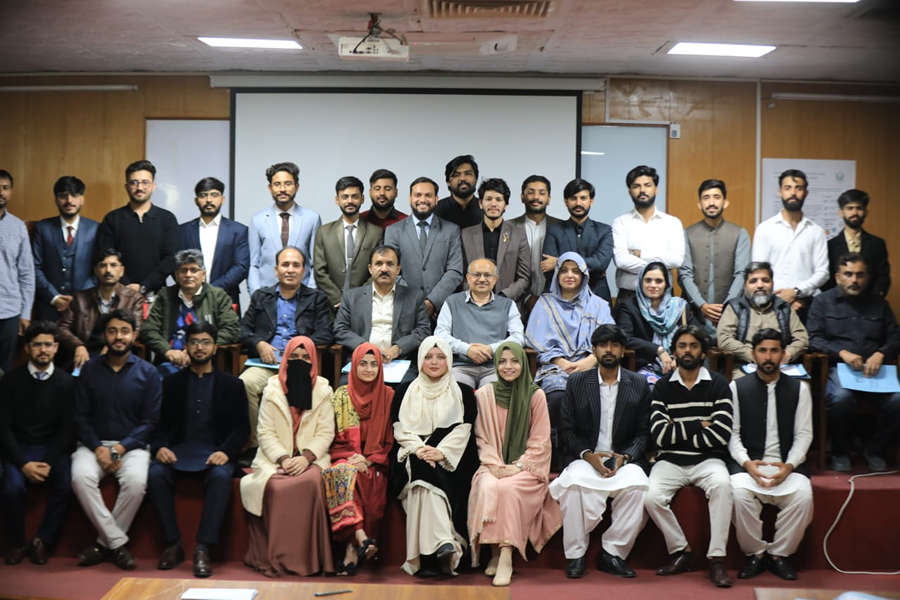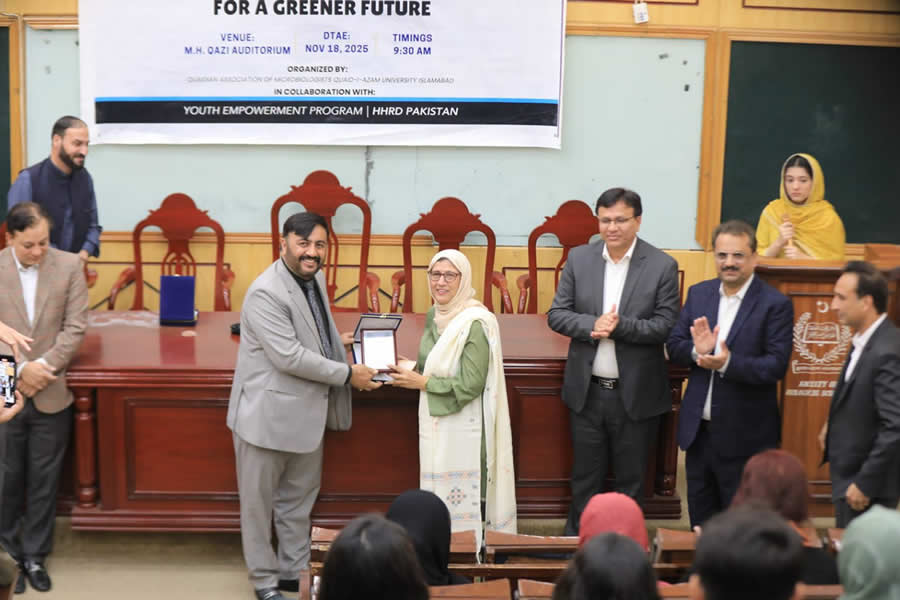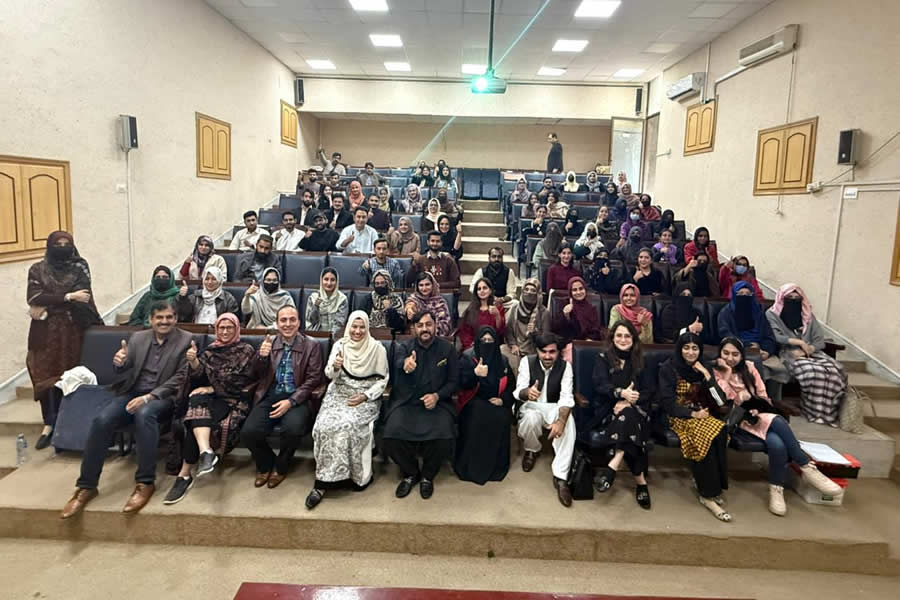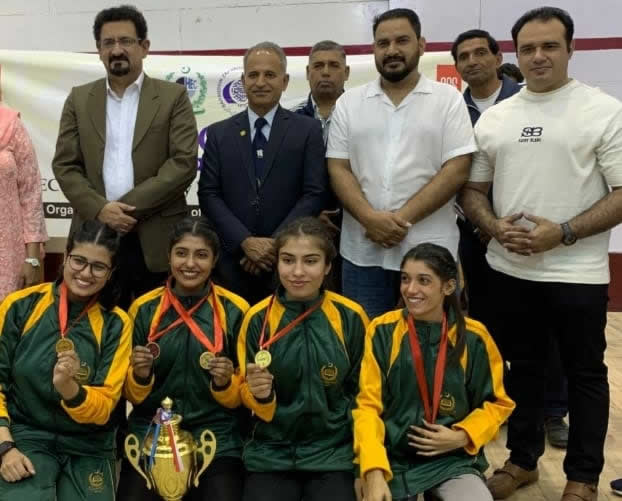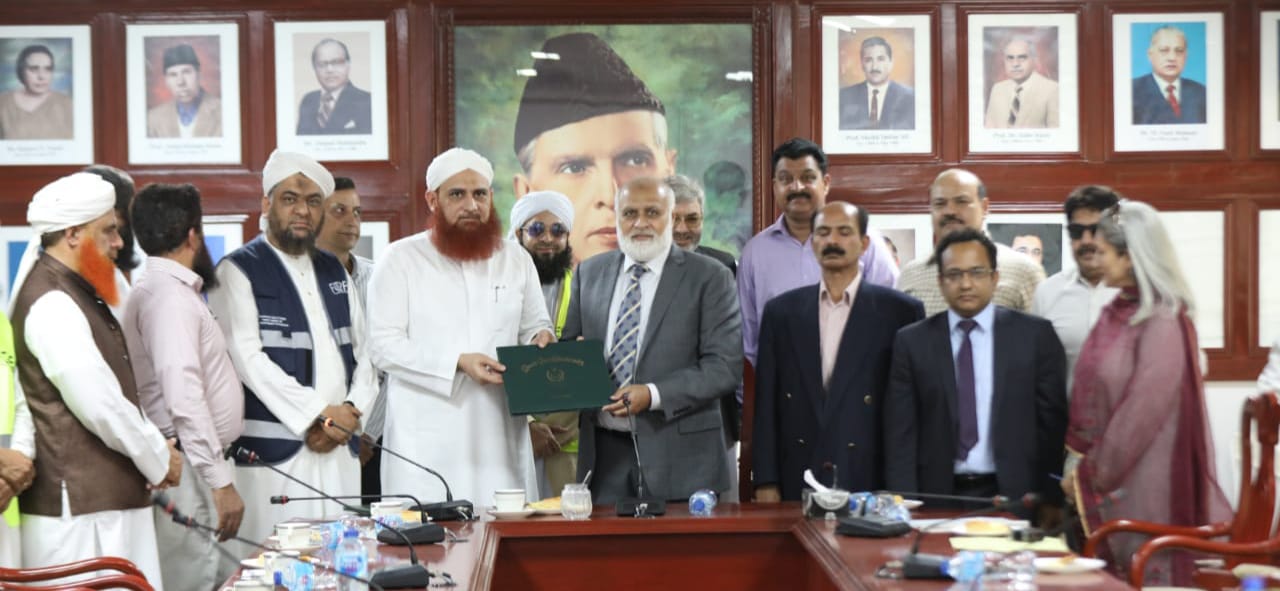Seminar on Un (Rule) of Law: The Policing Deficit in Pakistan
Pakistan today is beset with a situation where its main constitutional organs, the Legislature, the Judiciary and the Executive, still seem to be struggling to strike the right balance towards establishing a credible system of rule of law.
This was stated by Dr. M. Shoaib Suddle, Senior Fellow, Global Think Tank Network while addressing a seminar “Un (Rule) of Law: The Policing Deficit in Pakistan” at Quaid-i-Azam University (QAU). The seminar was organized by the Special Coordination Committee on 50 Years of QAU (1967-2017) as part of the 50th year celebrations of the university.
Dr. M. Shoaib Suddle said the edifice of state stands on institutions. Rather than strengthening the institutions, their structure gradually eroded. “As bureaucracy by its nature is subservient to the political executive, it is the first causality amongst the institutions. Its powers, systems, morale, accountability, have suffered gradual erosion over time. The result is that this critical skeleton of the Body State is inefficient, ineffective, corrupt, and, resultantly, an anathema to the whole concept of rule of law” he explained.
He briefed the historical background and evolution of the concept of rule of law since the ancient times when there were no clear rules written in the form of statuettes, everyone was subject to the whims of powerful men till the modern concept of rule of law. He also described the Islamic teachings of justice and informed the audience that how Magna Carta established the principle according to which everybody was accountable including the king.
He also discussed the police system in detail that is mandated to enforce law, protect human rights, defend fundamental freedoms and maintain public order. He said, though Pakistan inherited, in 1947, a police system from the British. However that Police system was an instrument in the hands of the – colonial – government, designed to keep the natives on a tight leash, not a politically neutral instrument for fair and just enforcement of law. Police was designed to be a public-frightening agency, not a public-friendly law enforcement mechanism.
“Sadly enough, the crisis facing the police has continued to deepen by the day. The solution lay in radically changing the way the police operated, in shifting from the colonial policing practices to community policing, in reinventing the police which had miserably failed to win the much-needed partnership with citizens and communities, and in developing a culture of professional policing, trained and equipped to uphold the rule of law” said Dr. Shoaib Suddle.
While concluding the talk he stressed that establishing the rule of law and law enforcement modernisation are probably the greatest challenges confronting Pakistan in the 21st century must be met, sooner rather than later.
The Vice Chancellor Quaid-i-Azam University Dr. Javed Ashraf also addressed the audience. He thanked the speaker for addressing an important and contemporary issue the people of Pakistan are facing. Senior faculty members and large number of students attended the seminar.
 QAU Microbiology Alumni Annual Dinner – A Celebration of Friendship and Success
QAU Microbiology Alumni Annual Dinner – A Celebration of Friendship and Success




